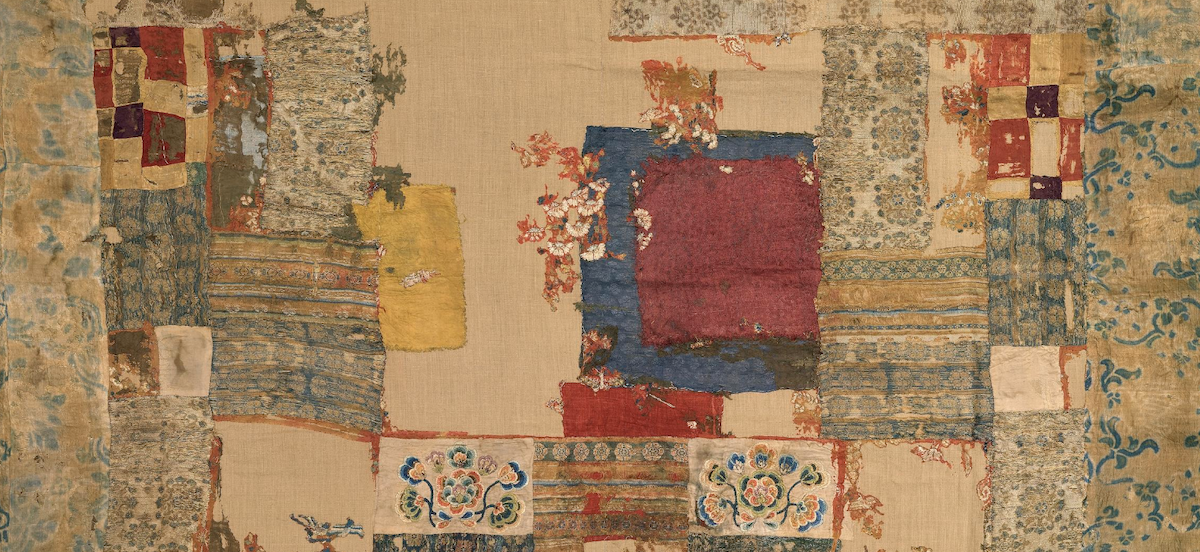MAS.856 Patchwork Sutra Cloth from Dunhuang. Collection of the British Museum
Speaker: YU Xin (Zhejiang University)
Date & Time: October 2, 2024, 4:30 pm – 6:00 pm
Venue: 202 Jones, Princeton University
Abstract:
This study presents a comprehensive examination of the sutra cloth, a protective and dignifying covering for sutra scrolls, which was first documented in a donation register for Yüquan Temple in Jingzhou by the Prince of Jin (later Emperor Yang of the Sui dynasty). Despite this early record, the evolution of sutra cloth usage in religious offerings and practices during medieval China remains largely unexplored. Drawing upon transmitted Buddhist and Daoist texts, Dunhuang manuscripts, visual sources, archaeological artifacts, and foreign collections, the study clarifies the origins, materials, forms, functions, and usage of the sutra cloth. It emphasizes that sutra cloths were used in both Buddhist and Daoist religious practices, highlighting three primary types: those used to wrap sutras stored in chests, those placed on altar tables to support scrolls, and those covering sutras to form a combination with the cloths laid beneath them. In addition to its material and textual analysis, the study integrates sources such as biographies of eminent monks, Daoist ritual texts, donation registers, Buddhist prayers from Dunhuang manuscripts, and archaeological findings from the Library Cave at the Mogao Grottoes and the Ruiguang Pagoda in Suzhou. The inclusion of objects from the Nara period Hōryūji Temple further enhances the exploration of sutra cloths’ material structure, role in book culture, and functional significance in offerings. Through an in-depth analysis of overlooked traditional documents, archaeological evidence, and the spatial and ritual contexts surrounding these objects, the research reconstructs a new cultural landscape shaped by these “sutra devices.” By exploring the intersections of religious structure, material culture, visual representation, and ritual space, it offers fresh perspectives on the symbolic and ritualistic significance of religious artifacts, their role in offerings, and the broader knowledge-belief-institution framework, providing a methodological foundation for expanding research on religious objects and their historical significance.
Speaker:
Yu Xin is Qiushi Distinguished Professor of Chinese Classical Philology at Zhejiang University. He received his PhD in Chinese History from Peking University. His research focuses on the history of medieval China and the Silk Road, with particular emphasis on manuscript culture, natural history, and the social history of religion during the Tang-Song period. He is the author of Way of Gods, Life of Humans: Social History of Livelihood Religions in Dunhuang during the Tang and Song Dynasties (Beijing, 2006), Signs of the Extraordinary in Medieval China: Erudition, Belief, and Society in the Age of Manuscripts (Shanghai, 2011), Savoir traditionnel et pratiques magiques sur la Route de la Soie (Paris, 2018), and Documents from the Western Regions and the World of Knowledge-Belief in Medieval China (Lanzhou, 2023). He has edited the 18-volume series Studies of Knowledge, Faith, and Institutions in Medieval China and currently serves as the chief editor of the Journal of Manuscript Studies.
See the original event posting here.

